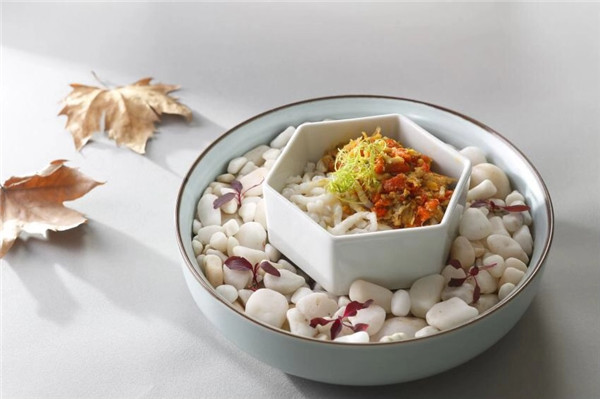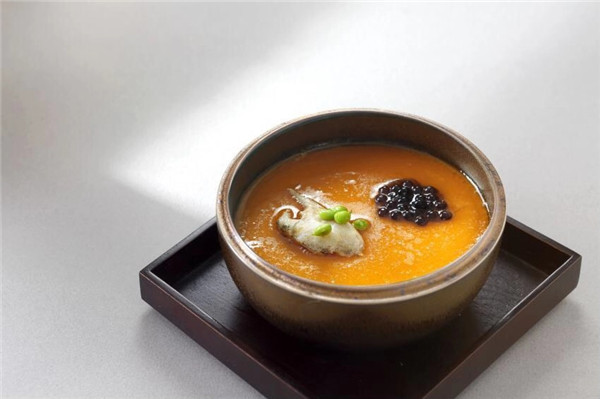China's insatiable appetite for an autumn delicacy
 0 Comment(s)
0 Comment(s) Print
Print E-mail China Daily, November 29, 2019
E-mail China Daily, November 29, 2019

Versatile ingredient
Named after its furry claws, hairy crabs are native to China and have been enjoyed by the locals for centuries. This shellfish is coveted for its creamy and savory roes.
While the hairy crab is mostly available only during the autumn months - this is when the drop in temperatures result in the creature accumulating fat to stay warm - there is a long-standing tradition to make crab butter that can be savored all year round.
Making this butter is a painstaking process that includes dissecting and digging out every morsel of flesh and roe by hand before slow cooking it for hours with pork fat. Known in Chinese as tu huang you, crab butter is believed to be created by home cooks who worked for rich clans in late 19th century.
"The diversity and possibilities within this fist-sized shellfish are infinite," says Wu Yi, executive chef of Maison on One, the Chinese restaurant in Bellagio Shanghai, an ultra-luxury hotel backed by China's Diaoyutai State Guesthouse and American leisure giant MGM Resort International.
"It can be either savored alone as an individual course, or paired together with a variety of vegetables, seafood and staples," adds Wu, a 46-year-old Shanghai native.
At Maison on One, which offers a range of Chinese cuisines, including Cantonese, Sichuan and Shanghai, Wu has created a special crab menu featuring 13 dishes. One of his proudest creations, he says, is a lasagna-inspired dish that replaces flour with tofu and cheese with crab roe. Even the desserts are made using hairy crab.
"On one hand, more people from outside the region where the crab is farmed are joining crowds that enjoy this seasonal delicacy. On the other hand, even die-hard connoisseurs are changing their way of savoring this dish, shifting from patiently dissecting the entire crustacean to indulging in ready-to-eat crab dishes," says Wu.
He recalls that the idea of crab dishes first manifested in Shanghai's dining scene back in the early 1990s when many newly emerged wealthy businesspeople were eager to pamper themselves with delicacies.
To meet the year-round demand for this product, which is only available during autumn, chefs at privately-owned eateries started extending the shelf life of the flesh and roes by frying them with pork lard.

Snowballing demand
Over the decades, similar crab dishes have become a staple at nearly every restaurant serving local cuisines. The retail market for this product has also boomed.
A report by China's e-commerce giant JD showed that retail consumption of hairy crabs increased by over 100 percent annually between 2016 and 2018. In 2018, the growth rate reached 140 percent nationwide.
Meanwhile, Suning, the country's leading retailer, says the amount of crabs it sold within eight hours during a special crab promotion day in September exceeded last year's total volume.
According to Shunfeng Express, one of the country's largest logistics companies, it delivered 300 million crabs in 2018, equaling the number of passengers who traveled by rail during Spring Festival. To cater to the burgeoning demand, the company has even designated an exclusive delivery route for the crabs during the peak season.
In March, a Suzhou-based company, Xi Feng Ge, announced that it spent 15 million yuan to gain access to farming and selling a new crab breed developed by an aquaculture scientist from Shanghai Maritime University.
Dubbed "Jianghai 21", this special breed took about 10 years for scientist Wang Chenghui and his team to perfect. According to the company, this new breed of hairy crabs will not only grow faster and larger, but also taste better.






Go to Forum >>0 Comment(s)